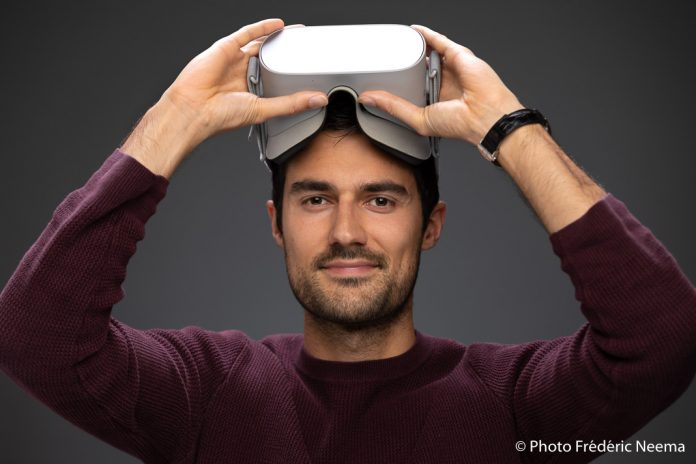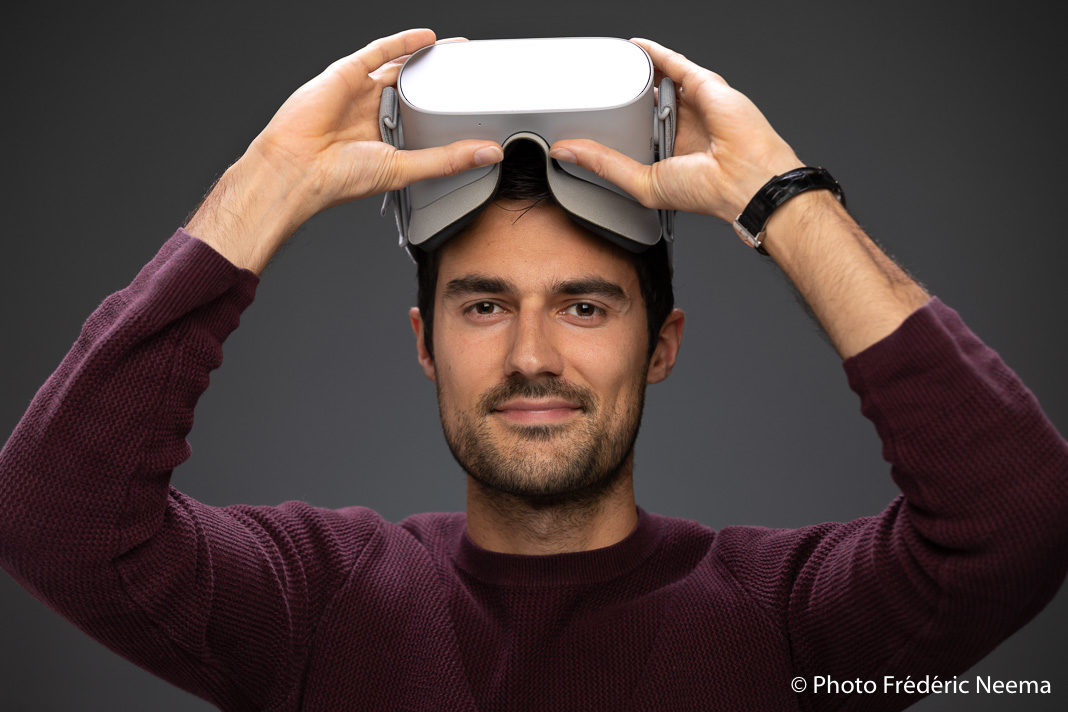
"20% of the population is dyslexic, 50% of NASA scientists and 40% of millionaires are also". Xavier Lesage-Moretti, one of the co-founders of Einstein Studios knows his statistics. He also knows if there are “The famous dyslexics, Richard Branson, Steven Spielberg or Albert Einstein“Others are too often victims of traditional education, based on writing and reading. Dyslexic children, whose sensory memory and ability to think in space is more developed than the average, learn differently.
It is this observation that led Xavier Lesage-Moretti and his Einstein Studios to embark on the design of a foreign language learning program using virtual reality and intended for dyslexic children. Last May, the team won the start-up of the year award at the French American Business Awards. And since then, the team has worked hard to launch a first version of its product: equipped with a virtual reality headset, the child learns Spanish by being in scenes of real life. For example, he goes to the supermarket and chooses fruit. A teacher, also present through virtual reality, supports him in his learning.
"We do not learn grammar, but we expose the child to a language in a context he understands, in the same way that a baby will learn to speak without knowing the rules of conjugation. Virtual reality allows children to be focused because physically engaged in conversation“, Explains Xavier Lesage-Moretti. "About thirty families use our program: we observe the children's reactions, and we are constantly listening to families to improve the product.”Each family pays a monthly subscription of $ 99, which includes a weekly lesson and the rental of the virtual reality headset.
Einstein Studios was born from the meeting of two engineers to whom the school had not left good memories: “I met Benjamin Roux during an internship at Apple in Cupertino, in 2011. We discovered many common points: we both hated school, especially because we did not have fun learning , and we believe in the educational value of video games ”, underlines this former Supélec.“In 2018, we decided to create a start-up linked to education, which would use virtual reality."
A first prototype to teach physics is first tested by children and parents during meetup. "We quickly realized that our product had more traction with so-called “neuro-diverse” children, and more particularly dyslexic children. We then asked about the relevance of teaching physics, compared to another subject, and the feedback was rather in favor of foreign languages."
Thanks to an initial fundraising of $ 270,000, the team now includes, in addition to the two co-founders, two programmers in San Francisco, a 3D artist in London and a designer in Paris. The goal for 2020 is to raise new funds, and expand the offering of Einstein Studios: “We know that the idea of teaching dyslexic children through virtual reality is the right one, but Spanish remains too niche, almost a luxury for families whose main concern is reading.”By extending its services to private reading assistance lessons based on the Orton Gillingham phoneme recognition method, Einstein Studios hopes to establish itself in a multi-million dollar market, without competition at the moment in the use of virtual reality.
Xavier Lesage-Moretti also does not despair of joining Y incubator, the famous startup incubator: “We tried to enter it three times, and each refusal allowed us to progress in the definition of our mission: for example, we abandoned the idea of making a video game on physics to launch a learning platform. 'Spanish."With a weekly growth of 10%, Xavier Lesage-Moretti does not despair of convincing Y Combinator of the value of the use of virtual reality for dyslexic children:"This is a new concept, which is still foreign to investors. We are actively working to collect all the research that will prove that this idea is the right one and to convince investors to follow us."








